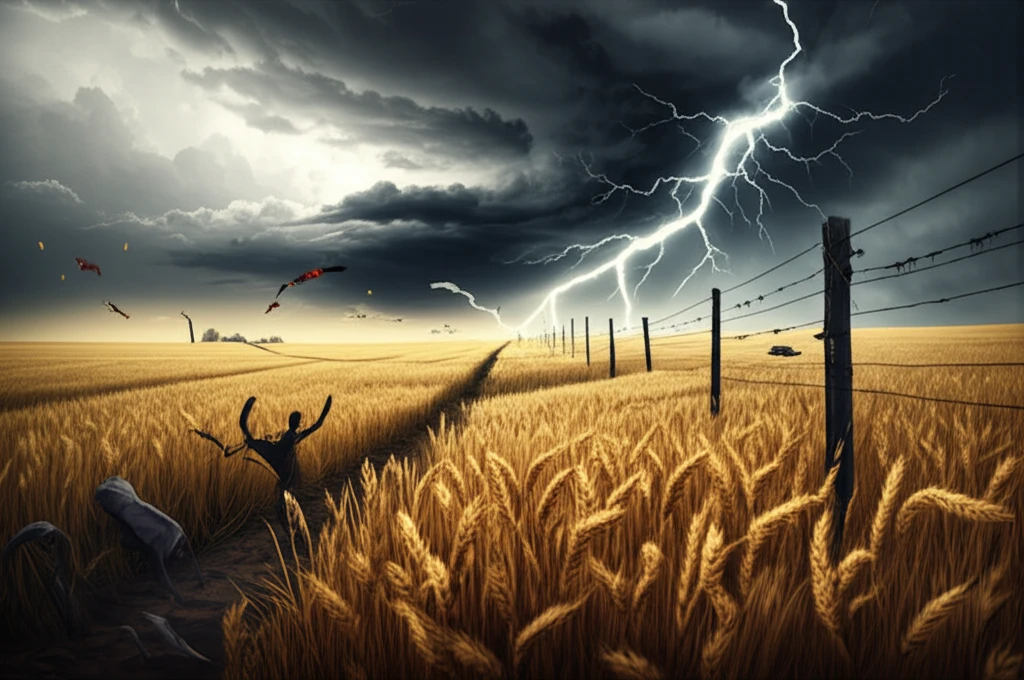
Food Fight: How the Russia-Ukraine War is Shaking Up Global Agriculture
"A deep dive into the conflict's ripple effects on food prices, supply chains, and what it means for your grocery bill."
The ongoing Russia-Ukraine conflict has evolved into a multifaceted crisis, transcending geographical boundaries and directly impacting global food security. As two of the world’s major agricultural powerhouses, Russia and Ukraine play a pivotal role in the production and supply of essential grains and agricultural commodities. The disruption of their agricultural activities has triggered a cascade of effects, resulting in significant threats and challenges to the global food system.
This article delves into the intricate ways in which the Russia-Ukraine conflict has destabilized agricultural markets. It examines the repercussions on commodity prices, supply chain logistics, and the overall stability of food availability worldwide. As consumers, investors, and policymakers navigate these turbulent times, understanding the dynamics at play is more critical than ever.
By analyzing the complex web of factors influencing agricultural markets, we aim to provide readers with a clear perspective on the current crisis and its potential long-term implications. The discussion will cover strategies for mitigating risks, adapting to market volatility, and ensuring food security in an increasingly uncertain global landscape.
How Does Conflict Impact Agricultural Markets?

The Russia-Ukraine conflict has exposed and amplified inherent vulnerabilities within the global agricultural system. Prior to the conflict, the world food system was already under pressure from various sources, including climate change, economic shocks, and the lingering effects of the COVID-19 pandemic. The conflict has since exacerbated these challenges, leading to disruptions in production, trade, and access to essential food commodities.
- Decreased Crop Yields: Military actions and logistical disruptions have significantly lowered crop production in Ukraine.
- Trade Interruptions: Export routes have been blockaded, restricting the flow of agricultural commodities to international markets.
- Price Volatility: The uncertainty surrounding supply has led to increased volatility in commodity prices, affecting both consumers and producers.
Navigating the New Normal in Global Agriculture
The Russia-Ukraine conflict has significantly altered the landscape of global agriculture, exposing vulnerabilities and creating new challenges for policymakers, businesses, and consumers. To navigate this new normal, a multifaceted approach is essential, focusing on risk mitigation, diversification, and resilience. By understanding the dynamics at play and implementing proactive strategies, stakeholders can work together to ensure food security and stability in an increasingly uncertain world.
